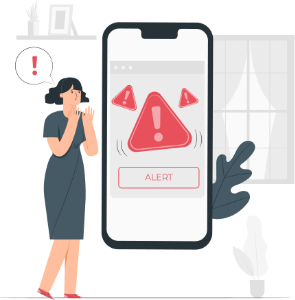1. What is autism spectrum disorder?
Autism spectrum disorder (ASD) is a developmental condition that happens during the early developmental period and causes significant impairment to the child’s daily life in many areas, and mainly affects the social interaction skills, communication and language abilities, interests and behaviors of the child.
Most of the time children with ASD look at others, but they may communicate, interact, behave, and learn in ways that are different from most other people. For example, they may prefer to play alone rather than with a friend, or don’t know how to express their basic needs, also they may walk or play in a strange way.
In some specific skills, such as problem-solving and calculation, people with ASD can show a range from gifted, for example performing complex calculations very quickly to severely challenged, such as struggling to count the number of a few objects.
The child development usually follows some basic milestones, referring to every area of the development, for example a child around 12 months old can wave to say “bye-bye” or walk holding on something; even if each child develops at their own pace.
If you want to be more aware of these very important steps for your child’s development, you can have a look at this link https://www.cdc.gov/ncbddd/actearly/milestones/index.html. Here you can find the most important milestones for each age and area, described in a very simple way and with a lot of explanatory videos.
2.Screening tools specific for ASD
So, if you as a parent or if the pediatrician during a well-child visit has any kind of concern about your child development, you should refer as soon as possible to a specialist for a proper developmental screening.
The specialist will observe and play with your child and interview you using a screening tool. One of the most reliable screening tools specific for ASD is the M-Chat-R (The Modified Checklist for Autism in Toddlers, Revised), as well as the STAT (Screening Tool for Autism in Toddlers & Young Children); together with the most general to identify a developmental delay ASQ3 (Ages & Stages Questionnaires, Third Edition).
If the result of the screening is positive for a developmental delay, it is very important to refer to a specialized center with a multi-professional team because diagnosing ASD can be difficult since there is no medical test, like a blood test, to diagnose the disorder.
Doctors look at the child’s behavior and development to make a diagnosis, collect information from caregivers and should use a gold standard test such as the ADOS 2 (The Autism Diagnostic Observation Schedule-Second Edition), a play-based assessment for the child combined with the ADI-R (The Autism Diagnostic Interview-Revised), a structured interview for parents.
ASD can sometimes be detected at 18 months or younger. By age of 2, a diagnosis by an experienced professional can be considered very reliable.
3.How can I recognize if my child has symptoms of ASD or not?
Parents have a crucial role in recognizing if their child is not developing following the typical pathway; nevertheless, they need the support of a specialist to clearly identify if the child actually has a developmental delay and, in particular, an ASD.
The most common early signs of autism in young children include:
- not responding to their name
- being more interested to objects rather than people, including parents
- avoiding direct eye contact
- not smiling when you smile at them
- getting very upset if they do not like a certain taste, smell or sound
- repetitive movements, such as flapping their hands, flicking their fingers or rocking their body or repeat actions over and over again
- not talking as much as other children
- repeating the same phrases
- not point at objects to show interest
- prefer not to be held or cuddled, or might cuddle only when they want to
- appear to be unaware when people talk to them, but respond to other sounds
- have trouble adapting when a routine changes
- lose skills they once had (for example, stop saying words they were using)
So, if your child is showing some of these early signs of ASD, act immediately to early identify IF your child is facing a developmental delay and needs an early intervention or if he or she only needs to be supported with some specific strategy or activity in order to be back on the normal track of the development. Early detection and early interventions are the best tools we have to help your child. Act early can make a significant difference in your child’s life.


